

|
MANY are familiar with Barindra Kumar Ghose as Sri Aurobindo’s younger brother and fellow-accused in the Alipore Bomb Case of 1908–9. He was convicted in that trial and sentenced to death, a sentence that was later commuted to transportation for life in the Cellular Jail in the Andamans. After his release under a general amnesty in January 1920, Barin, as he was popularly known, returned to the mainland, where he took up the work of editing several journals and periodicals. He also wrote more than twenty books. We introduce in this issue a reprint of his autobiographical prison narrative The Tale of My Exile, the story of his twelve years in the Andamans along with six others convicted in Alipore Bomb Case. Barin describes the brutality and humiliation of life behind bars but he usually tempers his descriptions with humour, and always affords us a view of the underlying good nature and spirit of these young revolutionaries imprisoned along with criminal types and subject to very harsh conditions. In this excerpt he describes the back-breaking labour demanded of the inmates in the Cellular Jail:
Originally written in Bengali, the book was translated by Nolini Kanta Gupta and published in 1922. The text in English and in Bengali has been out of print for a very long time. This new edition contains an introduction and several photographs, including some of the Alipore Jail in Calcutta and the Cellular Jail in the Andamans. Barin and his fellow political prisoners exemplified the spirit of sacrifice that ignited the freedom movement in those days. One of the most potent sources of inspiration for the young Bengalis who became revolutionaries was Bankim Chandra Chatterjee’s book Anandamath. This well-known historical novel is based on the Sannaysi Rebellion in Bengal during the late eighteenth century and, after its publication in 1882, became a stirring patriotic and political symbol for the nationalist movement. The next book introduced in this issue is a reprint of an early English translation by Sri Aurobindo and Barindra Kumar Ghose. Sri Aurobindo translated the Prologue and the first thirteen chapters of Part I of Bankim’s Bengali novel and published them in the Karmayogin between August 1909 and February 1910. All the remaining chapters were translated by Barin Ghose, and the entire book was later published. Sri Aurobindo admired Bankim’s work on many levels. In 1894, soon after his return to India and shortly after Bankim’s death, Sri Aurobindo wrote seven essays on the life and work of Bankim for the Indu Prakash, a weekly Marathi-English newspaper of Bombay. Some years later, for the April 1907 issue of the weekly newspaper Bande Mataram, he wrote the article “Rishi Bankim Chandra”, in which he called Bankim a “seer and nation-builder”. The ideas of complete self-sacrifice and devotion to the work of national liberation, the need for self-discipline and organisation in this work, and an intense feeling of religious patriotism are all themes which find expression in Anandamath. Sri Aurobindo wrote in the 1907 essay on Bankim that “of the new spirit which is leading the nation to resurgence and independence, he is the inspirer and political guru.” Another new book is an annotated compilation from the writings of Sri Aurobindo and the Mother titled Spiritual Heritage of India: Past, Present and Future. The excerpts highlight Sri Aurobindo’s insight into India’s spiritual heritage, his analysis of critical problems faced by a modern India and the world, and his and the Mother’s shared vision for India’s role in the spiritualisation of the human race. And to conclude, we draw attention to the new title in Arabic, a translation of Integral Healing, a compilation from the writings of Sri Aurobindo and the Mother. Notably, this is the first time that Sri Aurobindo Ashram has published a book in Arabic.
|
| |||||||||||||||||||||||||||||||||||
ENGLISH | |
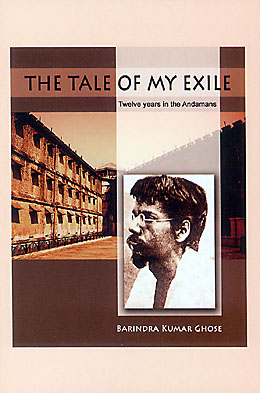 | The Tale of My Exile
Twelve Years in the Andamans |
Barindra Ghose, Sri Aurobindo’s younger brother, was sentenced to death in 1909 in the Alipore Bomb Case, a sentence later commuted to transportation for life in the Cellular Jail at Port Blair in the Andamans. He was released from there in January 1920 as part of a general amnesty. Told with honesty and humour, this book is the story of his imprisonment with some of his fellow revolutionaries, from the Alipore Jail to the hold of the SS Maharaja to the Cellular Jail and a hard life of deprivation, forced labour, and humiliation by the prison authorities. Translated from the original Bengali into English by Nolini Kanta Gupta and first published in 1922, this new edition includes an introduction and editorial notes. | |
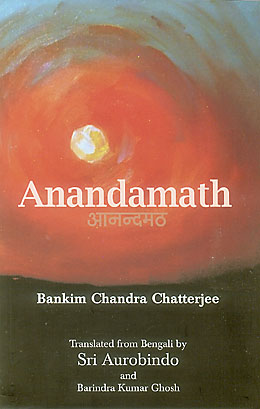 | Anandamath
— Bankim Chandra Chatterjee |
The famous Bengali novel Anandamath was first published in 1882. It is set in Bengal during the famine of 1770 and tells the story of an armed band of Sannayasis who lead a rebellion against the British East India Company. The book later became a symbol for the struggle for independence and its well-known hymn Bande Mataram a rallying cry for the freedom movement. Bankim’s writing was much admired by Sri Aurobindo, and his translation of the Prologue and the first thirteen chapters of Part I of Anandamath first appeared in the Karmayogin. The rest of the work was translated by his brother Barindra. This book is a reprint of an earlier edition which contained both their translations. | |
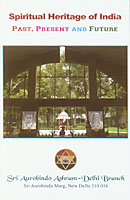 | Spiritual Heritage of India
Past, Present and Future |
The selections in this compilation, drawn primarily from the writings of Sri Aurobindo, are brief indicators to the much deeper considerations of India’s spiritual heritage on which Sri Aurobindo wrote with such insight. The extracts highlight his constructive approach to the past, gleaning the essential truths of Indian philosophy and culture, and applying them to an analysis of modern-day sociological ideas. Sri Aurobindo and the Mother envisioned a reshaping of the Indian spirit in new moulds, a renaissance that will lead the way in the spiritualisation of the human race. | |
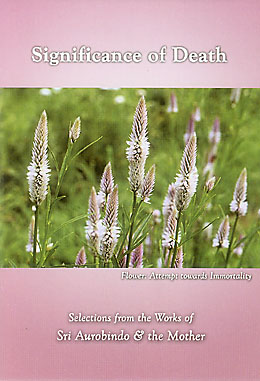 | Significance of Death
— Selections from the Works of Sri Aurobindo and the Mother |
| |
ARABIC | |
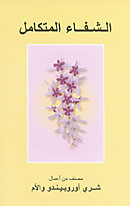 | Alshifaa Almotakaamel
— Mosanaf men Aamaal Shriaurobindo wal Om |
Arabic translation of Integral Healing This book of selections from the writings and talks of Sri Aurobindo and the Mother presents their insights into the causes and cure of illness. It examines the mechanism of illness primarily from a psychological point of view, taking into account the whole of our being including much that is beyond the range of our normal awareness. It explores how the hidden causes of physical disorders can be uprooted by discovering and utilising one's inner power and participating consciously in the accelerated evolutionary process known as Integral Yoga. The book is divided into 4 parts, "Psychological Causes of Illness", "Cure by Inner Means", "Cure by Spiritual Force" and "Medicine and Healing". | |
BENGALI | |
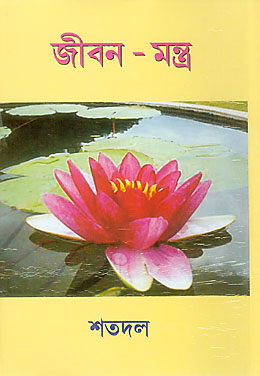 | Jeeban-Mantra
— Satadal |
| |
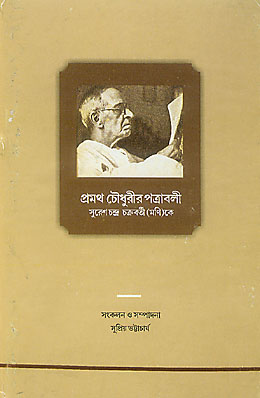 | Pramatha Chowdhurir Patrabali
Suresh Chandra Chakraborty (Moni) ke |
| |
You have received this as a subscriber to SABDA eNews. To unsubscribe, click here. To view previous issues of SABDA eNews, visit our Newsletters page.
|